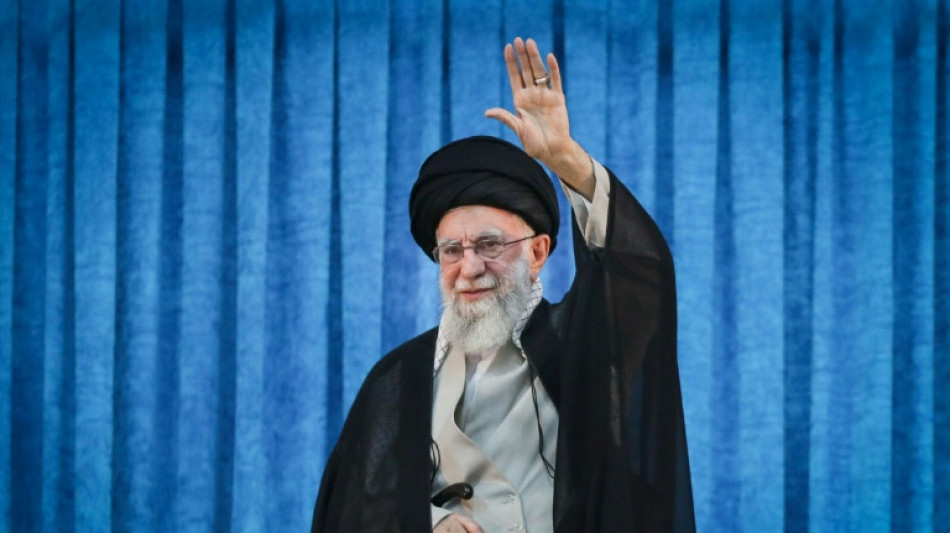
Iran's Khamenei says US nuclear proposal against national interest

Iran's supreme leader Ayatollah Ali Khamenei said Wednesday a US proposal for a nuclear agreement was against the national interest, amid sharp differences over whether Tehran can continue to enrich uranium.
The longtime foes have held five rounds of talks since April to thrash out a new accord to replace the deal with major powers that US President Donald Trump abandoned during his first term in 2018.
On Saturday, Iran said it had received "elements" of the US proposal through Omani mediators, the details of which have not been publicly disclosed.
"The (nuclear) proposal presented by the Americans is 100 percent against" the ideals of the 1979 Islamic revolution, Khamenei said in a televised speech.
"Independence means not waiting for the green light from America and the likes of America."
Iran's enrichment of uranium has emerged as a major point of contention.
Trump said on Monday his administration would not allow "any" enrichment, despite Tehran's insistence it is its right under the nuclear Non-Proliferation Treaty.
Khamenei said enrichment is "key" to Iran's nuclear programme and that the United States "cannot have a say" on the issue.
- 'Less than satisfactory' -
On Monday, Iran's lead negotiator, Foreign Minister Abbas Araghchi, held talks in Cairo with Rafael Grossi, head of the UN nuclear watchdog, the International Atomic Energy Agency.
In its latest quarterly report last week, the IAEA said Iran had further stepped up its production of highly enriched uranium.
In a separate report, it also criticised "less than satisfactory" cooperation from Tehran, particularly in explaining past cases of nuclear material found at undeclared sites.
Iran currently enriches uranium to 60 percent, far above the 3.67-percent limit set in the 2015 deal but still short of the 90 percent threshold needed for a nuclear warhead.
The reports came ahead of a planned IAEA Board of Governors meeting in Vienna later this month which will review Iran's nuclear activities.
Washington and other Western governments have continued to accuse Iran of seeking a nuclear weapons capability. Iran insists its programme is for peaceful purposes only.
The 2015 deal provided Iran with relief from international sanctions in return for UN-monitored restrictions on its nuclear activities.
Trump reimposed US sanctions when he quit the agreement in 2018 and has since tightened them with secondary sanctions against third parties who violate them.
Britain, France and Germany, the three European countries who were party to the 2015 deal, are currently weighing whether to trigger the sanctions "snapback" mechanism in the accord.
The mechanism would reinstate UN sanctions in response to Iranian non-compliance -- an option that expires in October.
Iran has slammed the IAEA report as unbalanced, saying it relied on "forged documents" provided by its arch foe Israel.
S.M.Riley--TNT